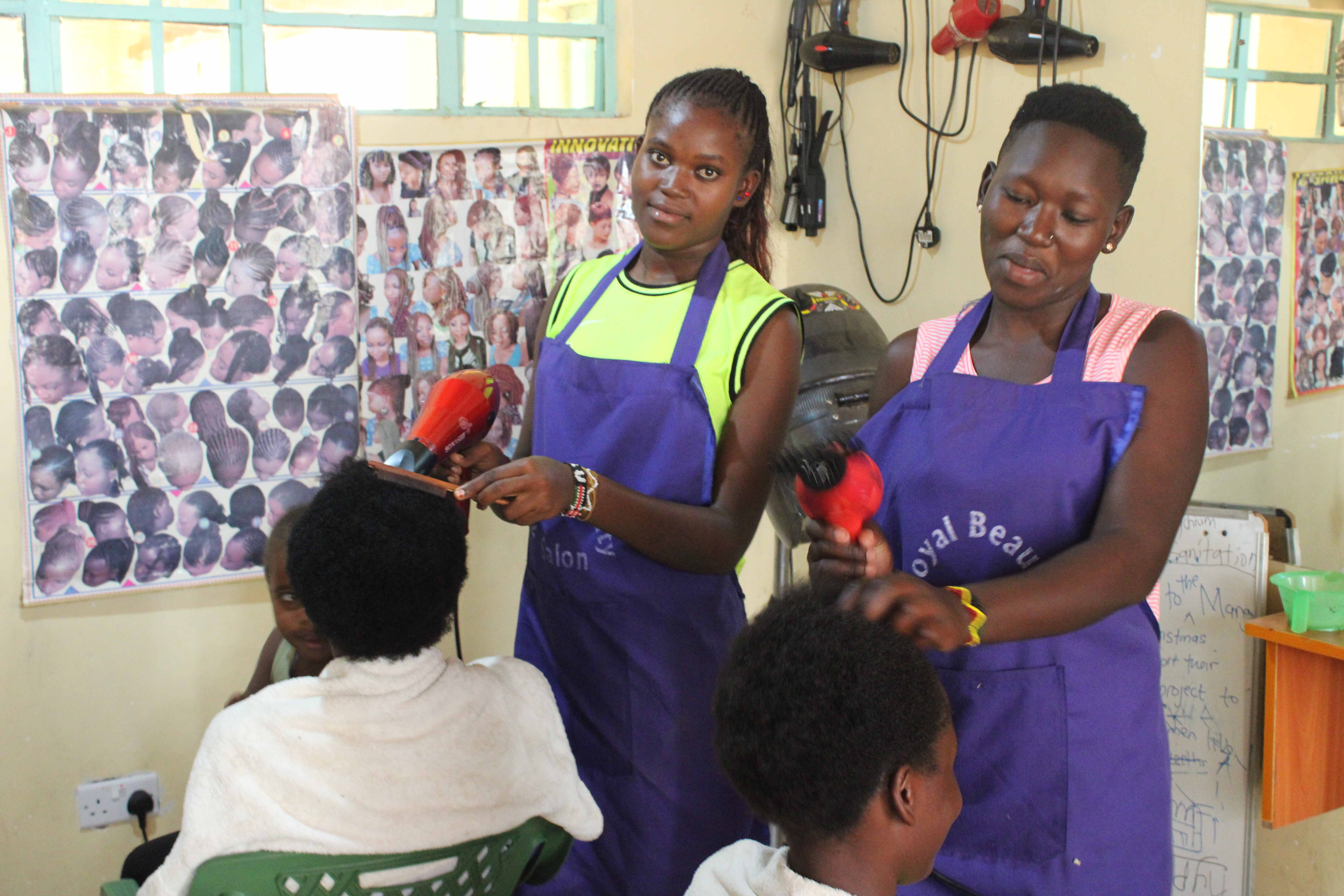10/1/2019
Girls For the Future (GFF)
Empowering women and girls through education, training, sexual health support, GBV survivors' rescue, and information.
The Girls for the Future project aims to empower and support women and girls in Kenya by increasing their educational opportunities, life skills, and resilience. Through the creation and promotion of programs, we enable rural women and girls to participate in agribusiness development, gain protection from discrimination, violence, and abuse, establish sustainable livelihoods, and access formal and informal education. The project considers various development factors, integrates existing services, and utilizes local talents, expertise, and resources.
Key components of our project include enterprise training and apprenticeships that connect women to financial services, confidence-building activities, networking opportunities, and the establishment of cohesive women's groups. With these initiatives, we aim to expand our support for more women and girls, enhance our domestic abuse and rape crisis center, broaden sexual health education in secondary schools, and further develop our women's enterprise project to provide vocational training apprenticeships for women who have experienced abuse.
Girls for the Future is a program that includes the delivery of three distinct bodies of work:
Women’s Enterprise:
The Women Enterprise strives to achieve the following outcomes:
- A strong social network and business links for young women entrepreneurs
- Greater business skills and experience for young women entrepreneurs
- Increased pathways into employment or self-employment for disadvantaged young women where they become ‘job creators’ rather than ‘job seekers'
- Reduced unemployment rates amongst young women in Homa Bay County.
- Greater confidence and self-esteem for young women entrepreneurs and orphaned girls in family-based foster care
- Improved household income and a rise in the standard of living of participating women
Sexual abuse and rape crisis services:
This intervention involves rescuing survivors of gender-based violence to a safe space (a rescue center) targeting adolescent girls and young women, hence contributing to:
- Greater safety and protection for girls and women from slavery, domestic abuse, and rape through family-based care homes, crisis centers, improved county-wide safeguarding policies and procedures, counseling and legal support
Family-based foster care, educational retention, and sexual health awareness
Objectives include:
- Greater access to regular nutritional meals, sanitary health care, and essential medical support for girls in family-based foster care
- Improved school attendance, performance, and retention of puberty-aged girls in secondary schools
- Improved sexual health awareness for secondary school children and safe, inclusive spaces for young people to explore issues associated with reproductive health.
Our local partners in this project are the community cadres (CHVs, chiefs, and village elders), the Office of the County Government, the Judiciary, the Office of the Public Prosecutor, the Office of Child Protection, the Ministry of Education, the Ministry of Health, government line ministries, and financial institutions.
The community cadre’s work is to support the identification of SGBV girls and young women who are widowed and vulnerable.
Local businesses and artisans support training and apprenticeship programs, and their community-based premises are used for onsite practical training.
Government line ministries support the registration of the women groups and provide training on agricultural products, which they will use to boost their income.
Financial institutions like the Women Enterprise Fund (a government agency in the Ministry of Public Service, Youth, and Gender Affairs) and Savings and Credit Cooperatives support training on business skills and offering financial services to the women who have transitioned from the program to enable sustainability.
EDUCATION & LIFE SKILLS


